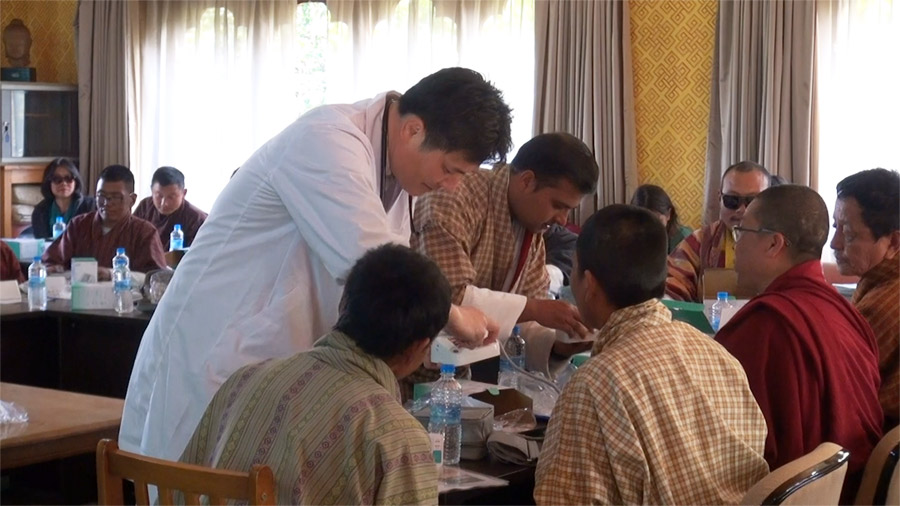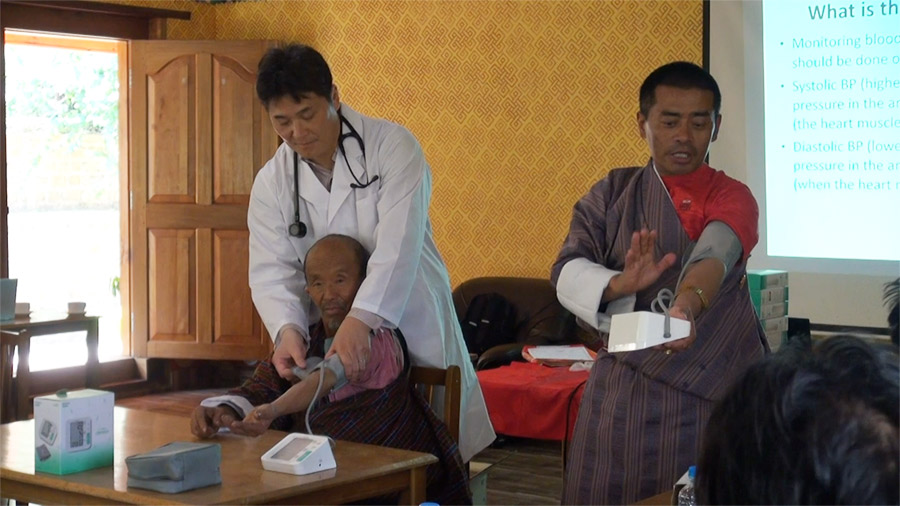
People in rural pockets of Trashigang will no longer have to travel to health centres to check their blood pressure. Instead, the village health workers will be providing the service in their homes. Some 50 village health workers in the district were provided with blood pressure monitoring equipment and thermometers. They were trained on using the equipment and will now help diagnose hypertension or high blood pressure.
 According to the Annual Health Bulletin 2023, around 26,000 Bhutanese suffered from hypertension in 2022.
According to the Annual Health Bulletin 2023, around 26,000 Bhutanese suffered from hypertension in 2022.
The Trashigang District Hospital alone recorded about 3,000 hypertension cases last year. The number, according to the hospital, is increasing annually.
According to the World Health Organization, the condition becomes fatal if left untreated. Since hypertension shows no significant symptoms, patients only know about the disease when they check their blood pressure.
Hypertension often leads to other diseases such as stroke, diabetes and kidney failure.
To provide hypertension checkups in villages, 47 village health workers were trained on using blood pressure equipment yesterday.
“Earlier, it was very difficult for the residents here as both elderly and young people had to go to Kangpar Health Centre to avail themselves of the services. Some had to cross rivers to come to the health centre while others had to bear high vehicle charges. Now that I have got training and the equipment, I can provide the services hereafter,” said Tshering Pelmo, a Village Health Worker in Kangpar Gewog.
“I was provided with the equipment a few months ago on trial. In a month, around 9 to 10 people, mostly the elderly ones, come to my place to monitor their blood pressure. Among them, only one or two people had to travel to health centres to seek advice and medication,” said Namgay Lhendup, a village health worker in Khaling Gewog.
The health workers were also trained to monitor and detect vital signs of hypertension.
If a person is diagnosed with high blood pressure, the village health worker consults health officials to seek advice for further medication and treatment.
The daylong training was conducted by Sherubtse College and Kyoto University in collaboration with Trashigang District Administration under the JICA Partnership Program.
Sonam Darjay, Trashigang
Edited by Sangay Chezom









